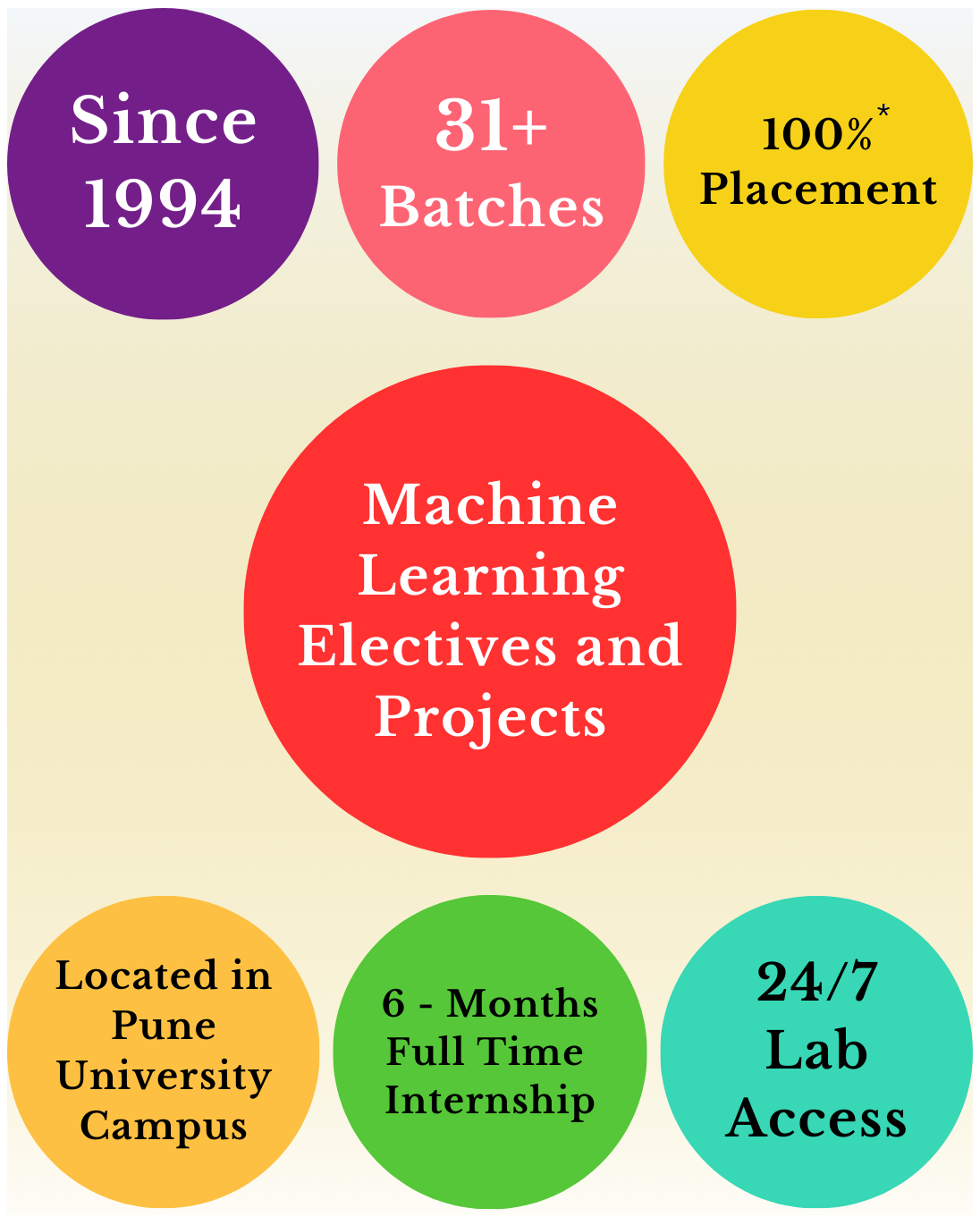- Deepak Dalvi
- Head of Products @ BlueVoyant (USA)
Watch on YouTube: Click here
Watch on YouTube: Click here
Watch on YouTube: Click here

Traditionally pure science can be categorized into two sub-categories viz.
theoretical sciences and experimental sciences. With the advent of computers, the
third type of science was introduced - Scientific Computing. Scientific computing is
in-between these two sub-categories.
It is more than theoretical but less than an experimental science. Scientific
computing is the application of computers to solve problems from domains of sciences
such as mathematics, physics, chemistry, biology, astronomy, computer science and
others. These problems are solved using big enough computers.
The M.Sc. (Scientific Computing) programme consistently maintains an outstanding placement record, averaging 100% placements over the last 30+ years. Graduates have secured positions in software companies and R&D institutes.
For detailed insights, visit our Fellowships and Placements page.
Students with a foundational understanding of computer science and a strong mathematical aptitude are encouraged to apply. Eligible qualifications include:
M.Sc. Scientific Computing is a four-semester programme.
The first three semester consists of classroom teaching the fourth semester is a
full-time internship.
The aim of this programme is to train computer science graduates to use computers in
solving domain-specific problems computationally.
Being an autonomus school the teachers have academic flexibility so as to adapt the
syllabus to the latest trends in the industry.
Watch on YouTube: Click here
The syllabus enables the students to do computational work in a domain of their choice. Courses on algorithms, principles of programming languages, core and advanced mathematics, statistics, parallel programming provide enough training to work on computational problems. The syllabus has core computer science subjects such as software engineering, databases, operating systems, networking which enable the students to opt for the software industry. On completion of the programme, a student can choose from research, teaching or the software industry or can opt for higher education. Emphasis is on hands-on practice as each course in the syllabus has a lab component attached to it.
As the syllabus has mathematical and statistical components transition to Data
Sciences is always an option for students.
Data Sciences is again an application of computers to solve a domain-specific
problem.
Getting into data sciences without adequate knowlodege of mathematics and statistics
is not possible.
The revised syllabus (w.e.f. July 2018) offers the MACHINE LEARNING course for three
semesters during the M.Sc. Scientific Computing programme.
The syllabus also has two-semester project i.e. during the first and the second
semester (see Computational Lab I & II in the syllabus).
Projects in the first two semesters (first year of M.Sc.) are chosen based on
student interest.
These projects make use of the latest technological trends (recently nodeJS, React
JS, MongoDB, Angular, Django, etc.) or can be research-based projects.
Experts from industry guide these projects.
Some of these projects can be with other departments on the university campus
(IUCAA, IBB etc.).
See page no. 11 of the Training and Placement Brochure Batch 2018-2020 for previous
year projects.
The fourth semester (see R&D & Industrial project in syllabus) is a full-time
project for which the students work with a research lab/institute or software
industry.
None. Rather than covering technologies such as Java, Python, C++ the focus is on the Programming paradigms these technologies are based on. Three paradigms are covered during the programme refer to PPL II on the syllabus page for more details.
Non-Academic activities organised by the students at the school include Technovation, farewell/freshers party, dushera
celebration, teachers day celebration, etc.
Apart from these activities the school also organizes workshops on soft-skills
(English imporvement sessions).
Session on cloud computing and seminars/presentation by Researchers and industry
experts are regularly organised by the school.
Preparatory sessions for placement are also organised.
M.Sc. - Scientific Computing was formerly known Master of Computer Science with specialization in Scientific Computing.
Some useful links about Scientific Computing: